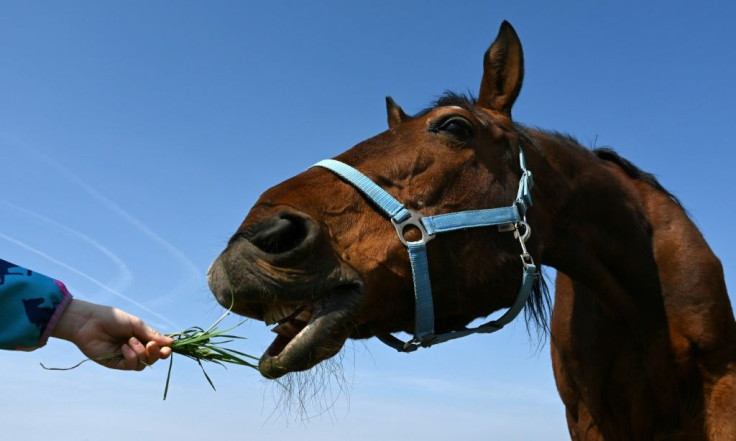Why Did US Space Force Recruit A Horse?

KEY POINTS
- Ghost works for Space Force through its Conservation Military Working Horse Program
- Conservations agents patrol the Vandenberg Air Force Base to protect endangered species
- Horses are better than off-road vehicles when it comes to patrolling the area
The U.S. Space Force’s latest recruit is a military working horse named Ghost, who will be tasked with helping conserve the protected species within one of its bases.
Ghost is a member of the Conservation Military Working Horse Program, which used to be part of the U.S. Air Force. After Space Force was officially established as an independent military branch, it inherited the program.
In a recent tweet, the Space Force announced Ghost’s involvement in the program. The 5-year-old mustang is one of the four working horses at the Vandenberg Air Force Base in California, which has a total land area of over 40,000 hectares.
The area is rich in ecological features and is home to at least 15 different endangered species.
“With a wealth of valuable cultural and ecological treasures, the base is recognized for leading the way in protecting and preserving its 42 miles of pristine coastline, 9,000 acres of sand dunes, 5,000 acres of wetlands, more than 1,600 irreplaceable prehistoric archeological resources, 14 rock art sites, a National Historic Landmark, five Native American villages, a National Historic Trail, 26 Cold War-era complexes, and protecting and monitoring more than 15 different endangered or threatened species,” Vandenberg Air Force Base said in a statement.
You have heard of a MW🐕 but what about a MW🐎?
— United States Space Force (@SpaceForceDoD) July 23, 2020
Protecting our access to space involves many unique aspects, including welcoming @30thSpaceWing's newest Military Working Horse to their Conservation Military Working Horse program. Ghost is a 5 year old @BLMNational Mustang. pic.twitter.com/r1dAd0plsc
As a military working horse, Ghost will help Space Force and conservation agents in monitoring the Vandenberg Air Force Base’s wildlife areas. This includes helping agents as they enforce fish and game laws to prevent illegal hunting and killing of animals.
According to U.S. Air Force Senior Airman Michael Terrazas, manager of the Military Working Horse Program and one of Ghost's handlers, using horses is better than off-road vehicles since they can easily traverse through the air base’s rough terrain. Also, horses leave a smaller ecological footprint than vehicles, which means they won’t disturb the natural habitats of the animals living in the area.
“We are able to go through creeks and water with the horses, high hills that we wouldn’t be able to get through with off-road vehicles,” Terrazas said in a previous statement. “There are places we’ve gone where the water is so deep that my boots are wet while on horseback, but the horses can walk through with no problems.”
© Copyright IBTimes 2025. All rights reserved.





















